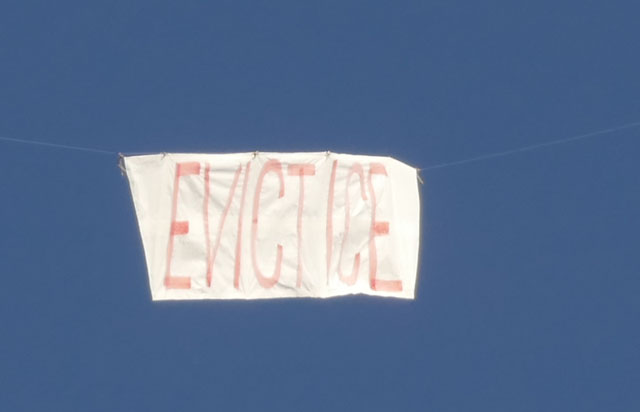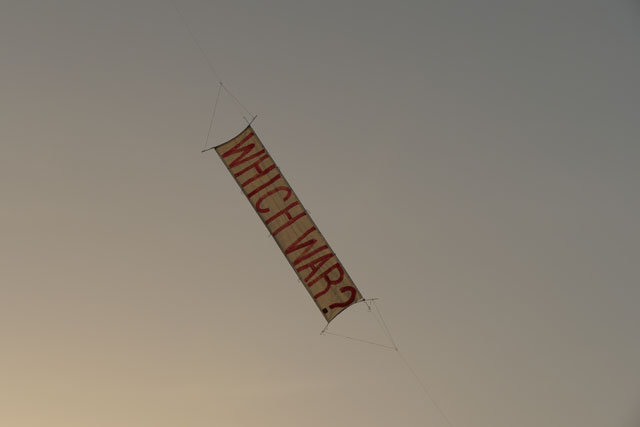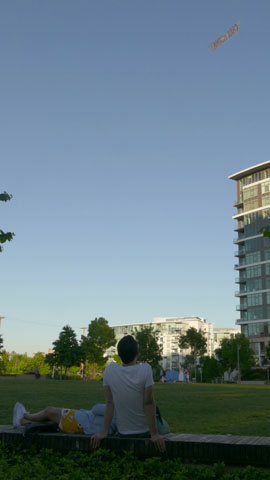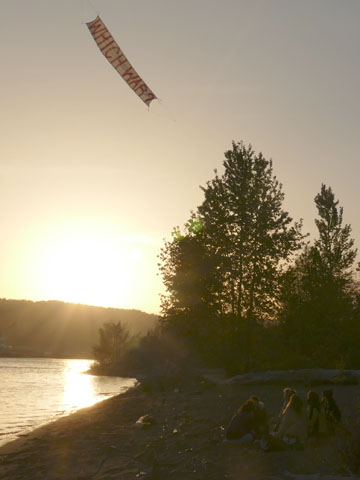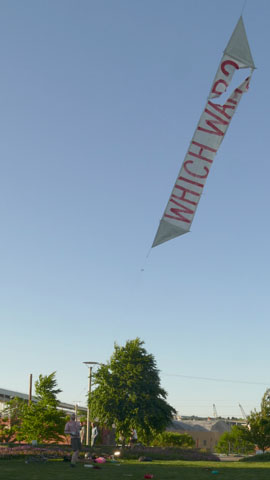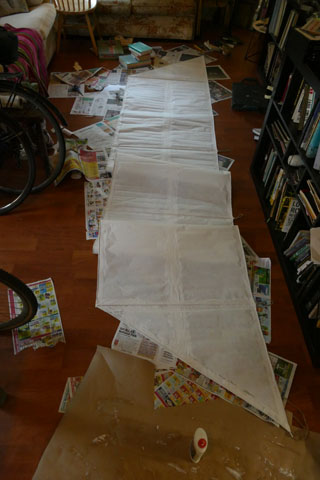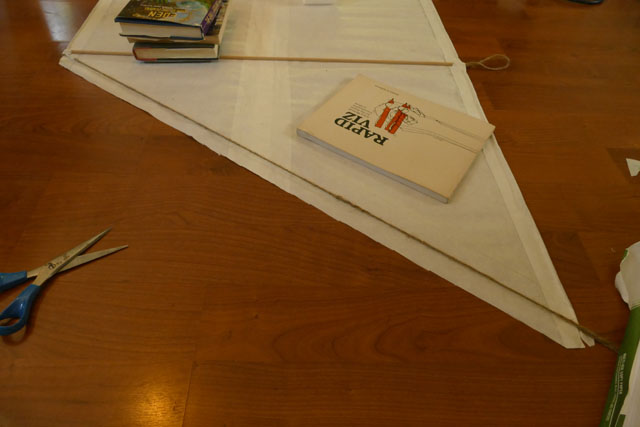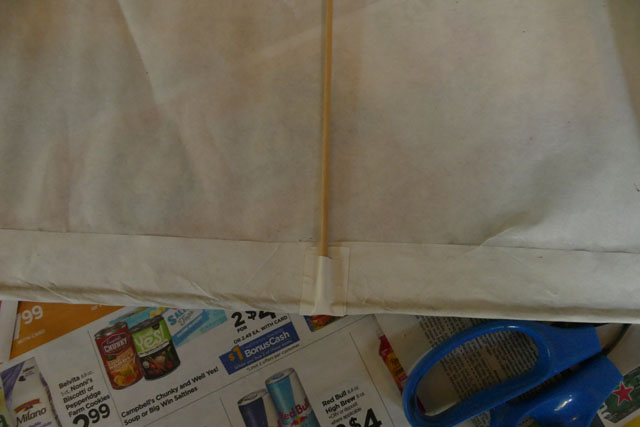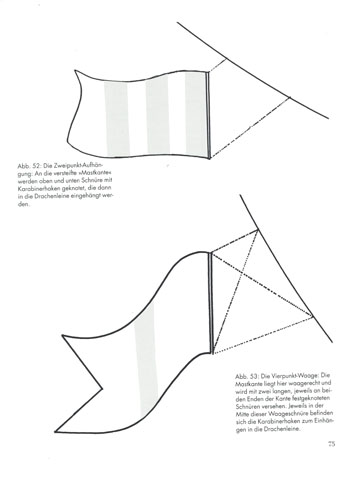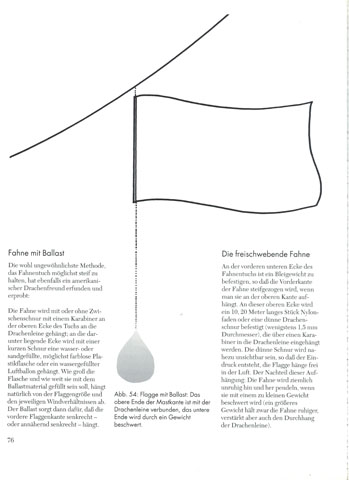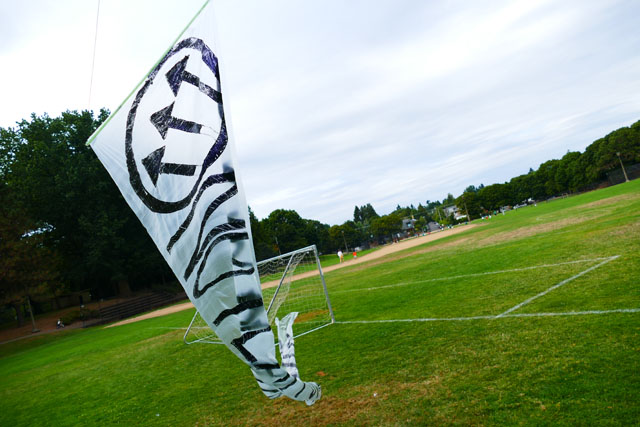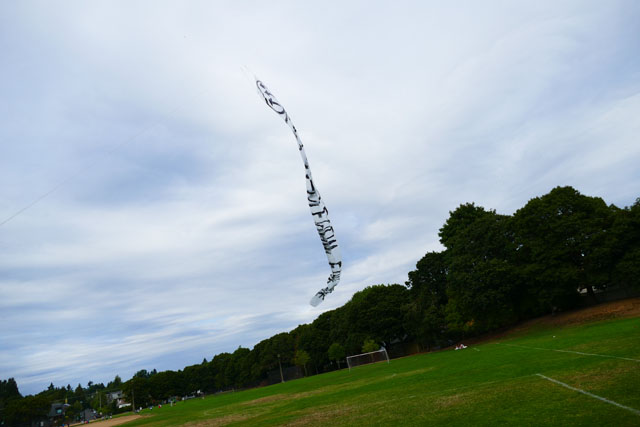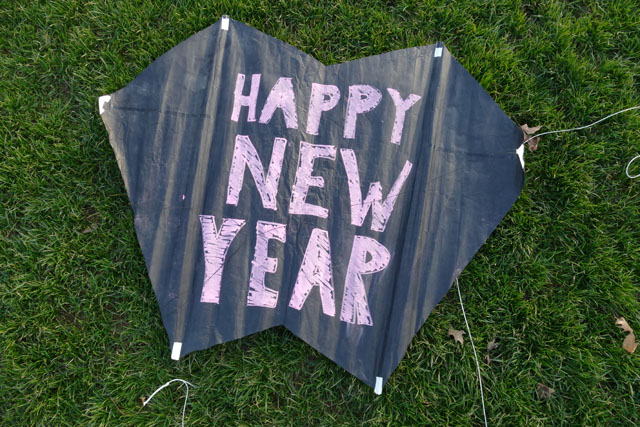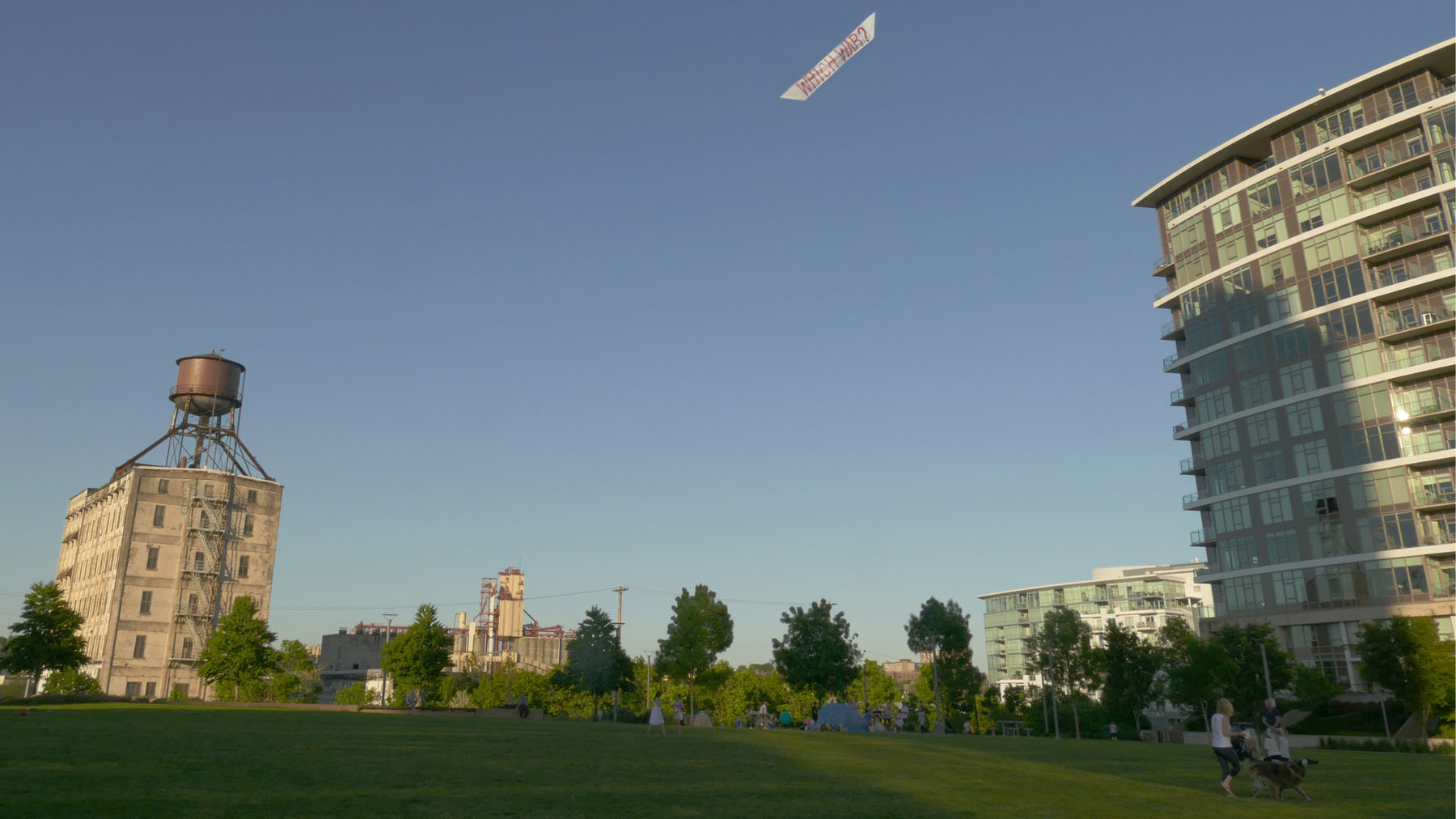Flying signs: kite banners
Over the past year I’ve been making kite banners for slogans.
I’ve had some success on large reinforced paper flags about a 3 feet (1m) high (see step-by-step tutorial). I like the speed and simplicity of paper, but may use fabric made to the same pattern. See choosing materials.
This 36-inch x 12-foot banner weighs 12 oz (340g) without carabiners, and just over a pound (467g) with all of its attachments. It can easily be lifted in 8-10mph winds by a large kite like my 9 foot Levitation Delta Light with a fuzzy tail.


Visibility
A friend spotted this sign from 6 blocks away and said it was clearly readable, confirming the idea that the sign is visible from 1200 feet away (365m). Here’s the phone photo:

When winds are out of the N/NW I can fly from Fields Park In NW Portland and be visible from Route 405 at the Fremont Bridge on-ramp.
To be readable from 1200 feet letters must be 30 inches high and either black or red on white, and not fluttering.

How it works

A frame of string is folded and glued into the edge around the paper, with attachment loops popping out of the top side:
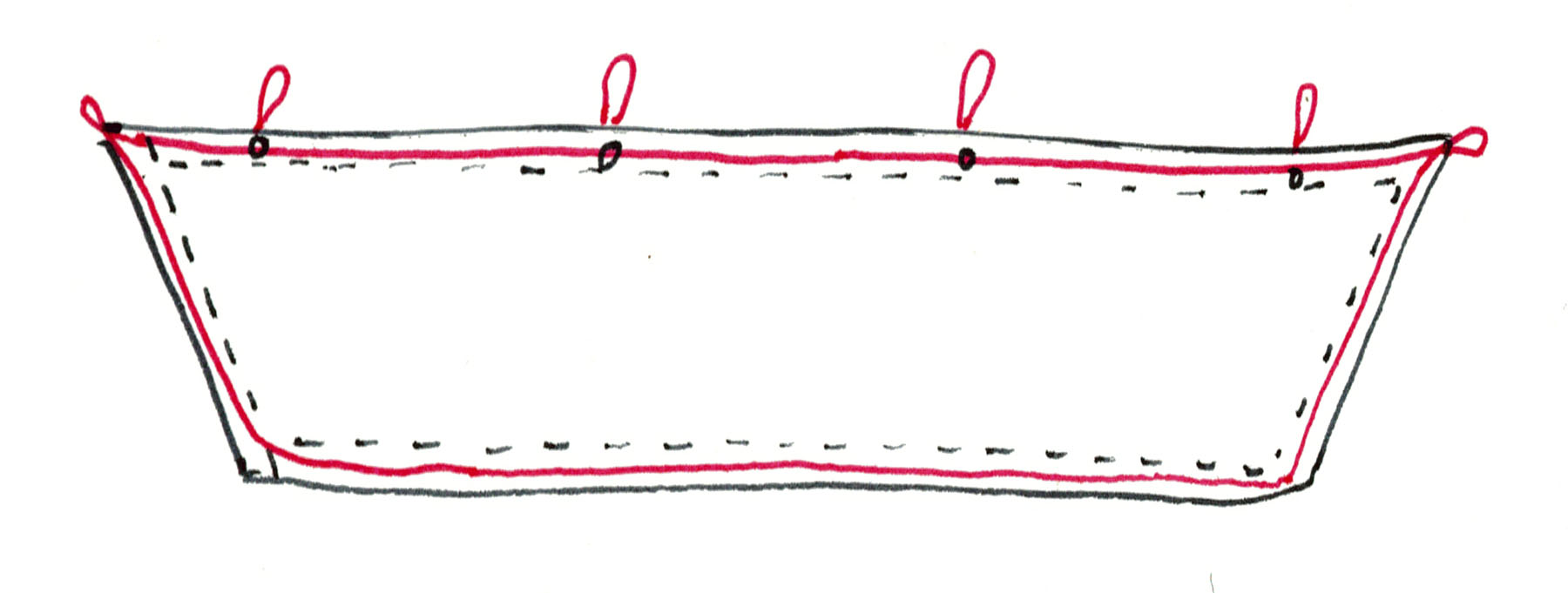 paper is folded over to the dotted line, enclosing the red string
paper is folded over to the dotted line, enclosing the red string
Dowels perpendicular to the kite line add stiffness and readability as well as preventing the paper from flapping itself apart. Dowels are needed every 2’ or so for paper. Every 4’ would be fine for cloth.
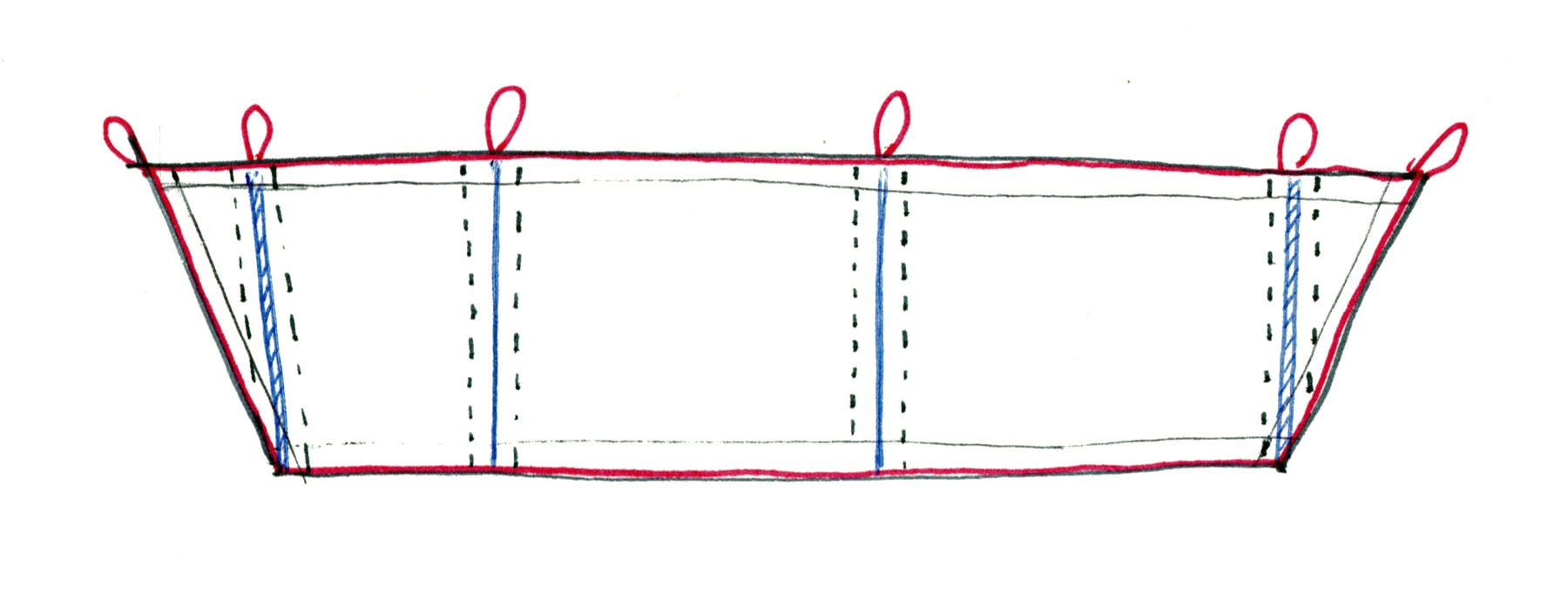 Strips of paper are added at the dotted lines to glue the blue dowels down.
Strips of paper are added at the dotted lines to glue the blue dowels down.
A large carabiner at the top of the banner holds against the pull of five smaller carabiners pulling downwards, tensioning the sign along the kite line.
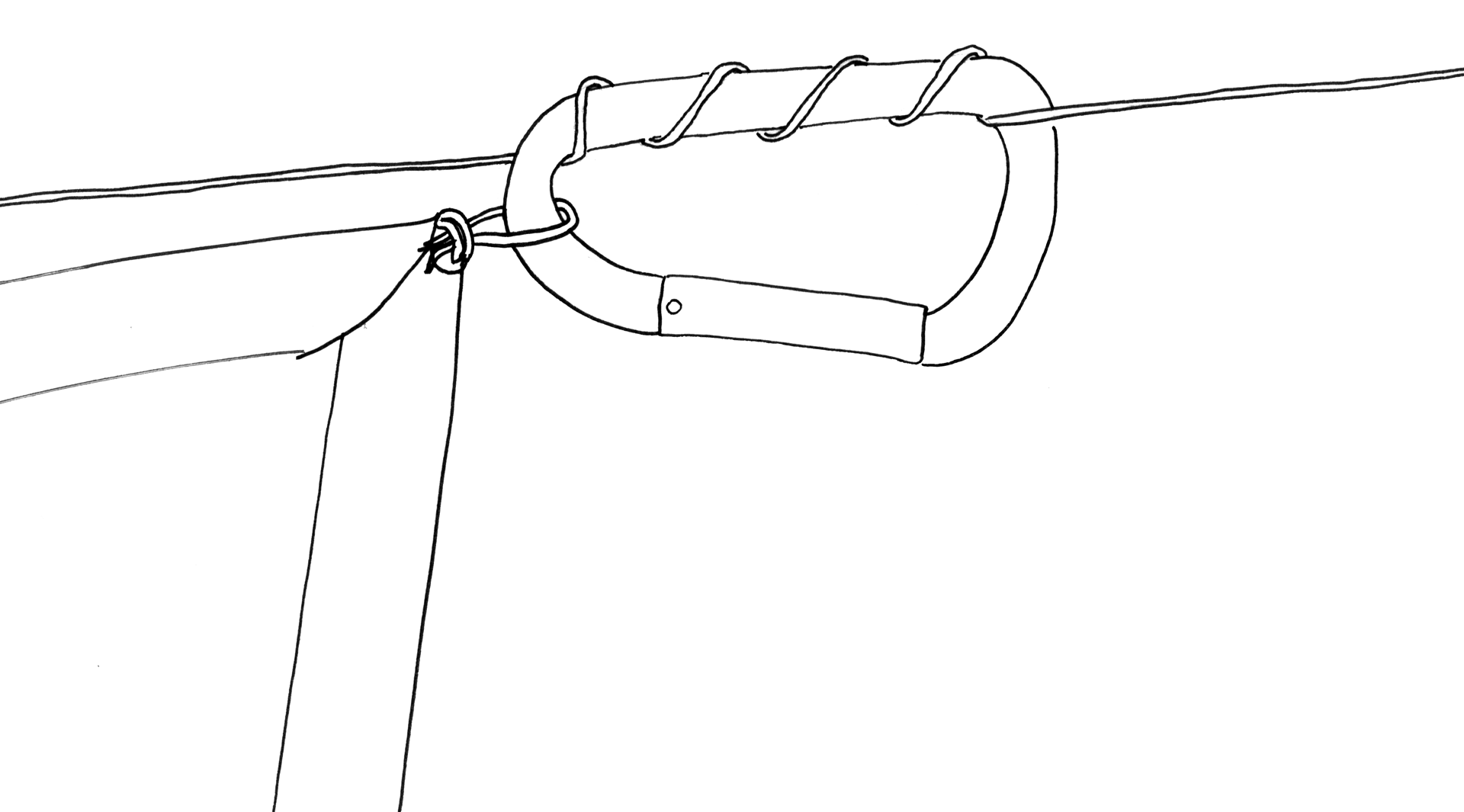
Choosing materials
I want my slogan banners to match the disposability of slogans. Strong paper and wooden dowels are light, quick, cheap, and biodegradable, and I’m getting better at making it fly without ripping.
Paper takes paint and ink well and is luminous when backlit. Tyvek is darker in the sky and twice as heavy. Nylon is hard to paint and gets pricey, but I think I may use it for my next banner.
Mulberry paper is a traditional kitemaking material prized for its durability. It is lighter than ripstop nylon, and can be quickly glued together. It is easy to paint with tempera or ink. A mulberry paper banner costs $12.00, while 3/4 oz/yard ripstop would cost $40.00. Commercial Air Banners letters are $10-$35 each.
I would consider making a ripstop nylon banner for more permanent artwork. Dry erase markers will permanently stain nylon, although their marks won’t match the advertized color. For more painterly marks, John Pollack recommends using acrylic paint in a 50/50 mixture with Golden Acrylics GAC 900 medium.
Plastic sheeting is usually polyethylene, which doesn’t take paint. No marker or paint I’ve tried has stuck to flying, fluttering plastic. Years ago I cut letters from black trash bags and tried to heat seal them to translucent sheeting with an iron. This was messy and the letters ripped, but might be worth another shot with a bag sealer.
Thanks
Thanks to Jayne Meacham (making, flying sloganeering, photography) Nim Wunnan (flying, photography, and paints, photography) & Jack Lewis painting brushes.
Gallery of experiments and sources
